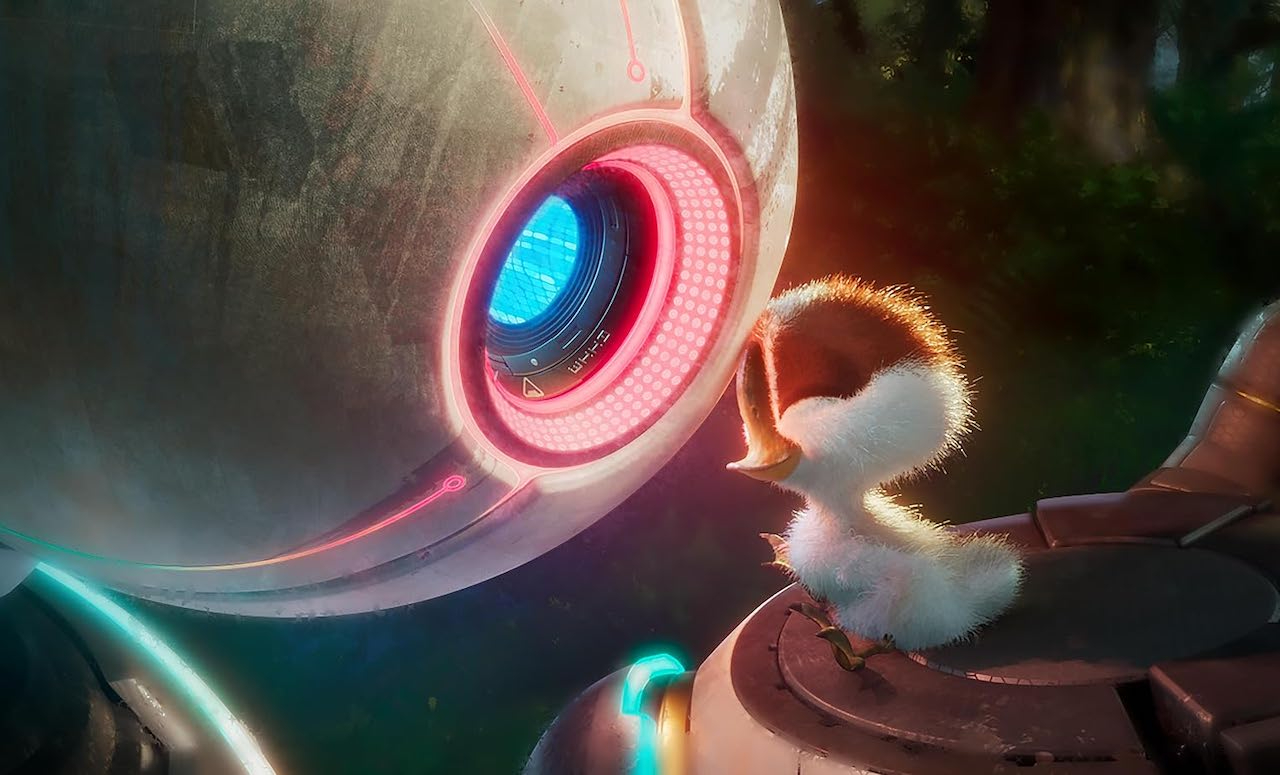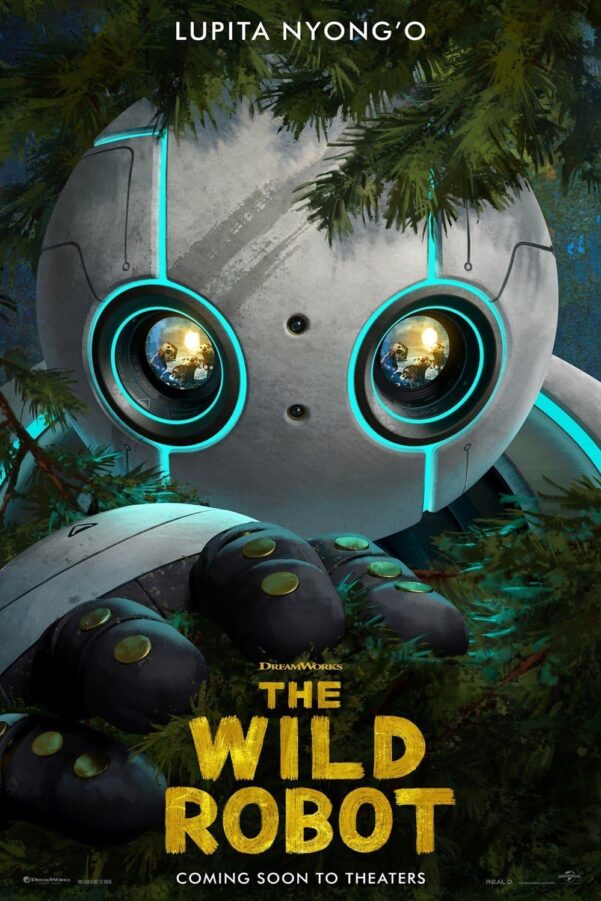The Wild Robot

DreamWorks as a studio has always favoured stories that combine two things that normally don’t go together and create some sort of a found family dynamic out of it. This can be seen time and time again in How to Train Your Dragon with the conflict between Vikings and dragons, Mr Peabody taking on the role of a father to a young boy in Mr Peabody & Sherman, and the brotherhood between Spirit and Little Creek in Spirit: The Stallion of Cimarron. The Wild Robot follows that same found family aspect between two very different worlds. This time, the studio might seem to have taken it a little bit too far by pairing the maternal prowess of a robot and the innocence of a young gosling. But it works brilliantly.
The Wild Robot follows Roz, an all-purpose helper robot who ends up stranded on a remote island. She is played charmingly by Lupita Nyong’o who captures well the persistent optimism of AI voices and machines. Initially unfeeling and only looking for a task to complete, Roz disrupts the wildlife, makes enemies out of the animals, and then comes to care for a lone little egg which later hatches into the young gosling Brightbill. Finding purpose in caring for Brightbill and ensuring he can fly before winter sets into the island, Roz begins to develop emotional intelligence and finds identity outside of just being a machine.
The feature borrows mannerisms and plot elements from other animated pictures such as gestures that signify affection – something that is also present in director Chris Sanders’s other works like How to Train Your Dragon and Lilo & Stitch – and the searching for a familial connection from a non-feeling being after a death in the family such as Hiro and Baymax’s dynamic in Big Hero 6. In general, The Wild Robot emotionally grips viewers by capitalising on the multiple relationships found throughout the film, not just between Roz and Brightbill, but also the contrast between predators and prey, and the animals’ connection to the land they’re living in. It does this through layered storytelling where multiple different arcs are being covered at the same time all the time. While Roz and Brightbill are the overall centrepiece, the other characters draw the audience in with their charm and how their story links with the main plot. This is especially true for characters like Catherine O’Hara’s Pinktail who becomes a pseudo-example for Roz when it comes to motherhood, Bill Nighy’s Longneck and the wisdom he imparts on Brightbill as an older goose, and Pedro Pascal’s Fink whose lone fox act reflects both Roz and Brightbill’s need for family. Other notable voice performances are that of Mark Hamill and Stephanie Hsu.
Because The Wild Robot is a very nature-focused film, the scenes are all vibrant and full of varying textures. The use of colour here especially is one the most visually stunning works in recent animation, recalling a similar fantastical element found in Puss in Boots: The Last Wish. But instead of using it on magic and elements of fantasy, the colours highlight the beauty of the natural world. It feels so strange looking at it through Roz’s eyes as she initially belonged to a very modern and achromatic world. As the film moves forward and she begins to blend with the world surrounding her, the aspects that once were normal to Roz – the lack of colour, and the clinical and clean aesthetic – start to feel alien to the viewers as well. It’s as if she’s truly transitioning into a wild robot.
While the story might be typical and does easily slip into clichés, there is still so much to appreciate in terms of the loveable characters, the awe-inspiring cinematography and animation choices, and the soundtrack that brings to life the world that Sanders has adapted from Peter Brown’s novel. The Wild Robot is so overwhelming, emotionally and visually, in the best way possible.
Mae Trumata
The Wild Robot is in UK cinemas on 18th October 2024.
Watch the trailer for The Wild Robot here:



























Facebook
Twitter
Instagram
YouTube
RSS